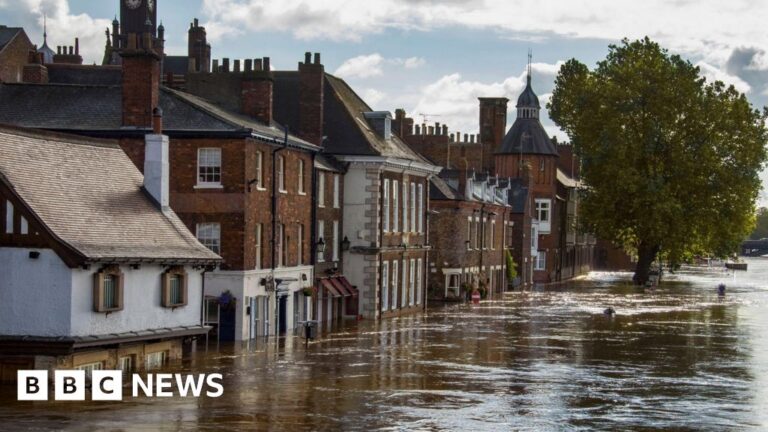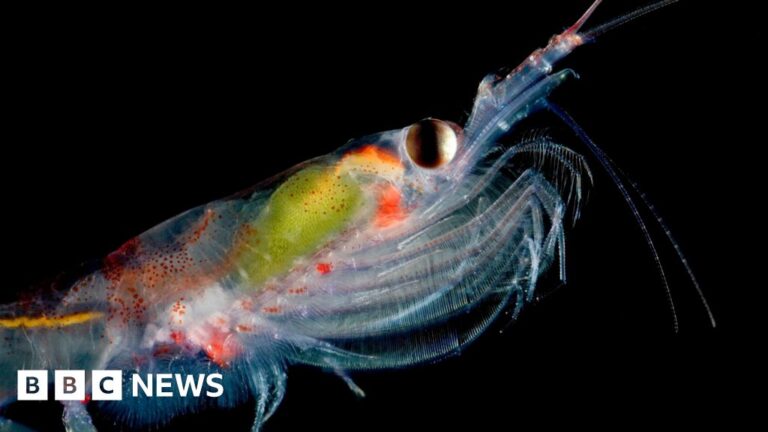Here is the plain text result:
In June, two American astronauts left Earth expecting to spend eight days on the International Space Station (ISS). But after fears that their Boeing Starliner spacecraft was unsafe to fly back on, Nasa delayed Suni Williams and Butch Wilmore’s return until 2025.
They are now sharing a space about the size of a six-bedroom house with nine other people. Ms Williams calls it her “happy place” and Mr Wilmore says he is “grateful” to be there.
But how does it really feel to be 400km above Earth? How do you deal with tricky crewmates? How do you exercise and wash your clothes? What do you eat – and, importantly, what is the “space smell”?
Every five minutes of the astronauts’ day is divided up by mission control on Earth. They wake early. At around 06:30 GMT, astronauts emerge from the phone-booth size sleeping quarter in the ISS module called Harmony. “It has the best sleeping bag in the world,” says Nicole Stott, an American astronaut with Nasa who spent 104 days in space on two missions in 2009 and 2011.
The astronauts might then use the bathroom, a small compartment with a suction system. Normally sweat and urine is recycled into drinking water but a fault on the ISS means the crew must currently store urine instead. Then the astronauts get to work. Maintenance or scientific experiments take up most time on the ISS, which is about the size of Buckingham Palace – or an American football field.
Inside it’s like many buses all bolted together. In half a day you might never see another person,” explains Canadian astronaut Chris Hadfield, commander on the Expedition 35 mission in 2012-13.
After a hard day’s work, it is time for dinner. Food is mostly reconstituted in packets, separated into different compartments by nation. “It was like camping food or military rations. Good but it could be healthier,” Ms Stott says. “My favourite was Japanese curries, or Russian cereal and soups,” she says.
Families send their loved ones bonus food packs. “My husband and son picked little treats, like chocolate-covered ginger,” she says. The crew share their food most of the time.
Astronauts are pre-selected for personal attributes – tolerant, laid-back, calm – and trained to work as a team. That reduces the likelihood of conflict, explains Ms Sharman. “It’s not just about putting up with somebody’s bad behaviour, but calling it out. And we always give each other metaphorical pats-on-the back to support each other,” she says.
And finally, bed again, and time to rest after a day in a noisy environment (fans run constantly to disperse pockets of carbon dioxide so the astronauts can breathe, making it about as loud as a very noisy office).
All three astronauts talked about the psychological impact of seeing their home planet from 400km in orbit. “I felt very insignificant in that vastness of space,” Ms Sharman says. “Seeing Earth so clearly, the swirls of clouds and the oceans, made me think about the geopolitical boundaries that we construct and how actually we are completely interconnected.”
Ms Stott says she loved living with six people from different countries “doing this work on behalf of all life on Earth, working together, figuring out how to deal with problems”. “Why can’t that be happening down on our planetary spaceship?” she asks.
Eventually all astronauts must leave the ISS – but these three say they would return in a heartbeat. They don’t understand why people think the Nasa astronauts Suni Williams and Butch Wilmore are “stranded”. “We dreamed, worked and trained our entire lives hoping for an extended stay in space,” says Mr Hadfield. “The greatest gift you can give a professional astronaut is to let them stay longer.”
And Ms Stott says that as she left the ISS she thought: “You’re gonna have to pull my clawing hands off the hatch. I don’t know if I’m going to get to come back.”
Source link




